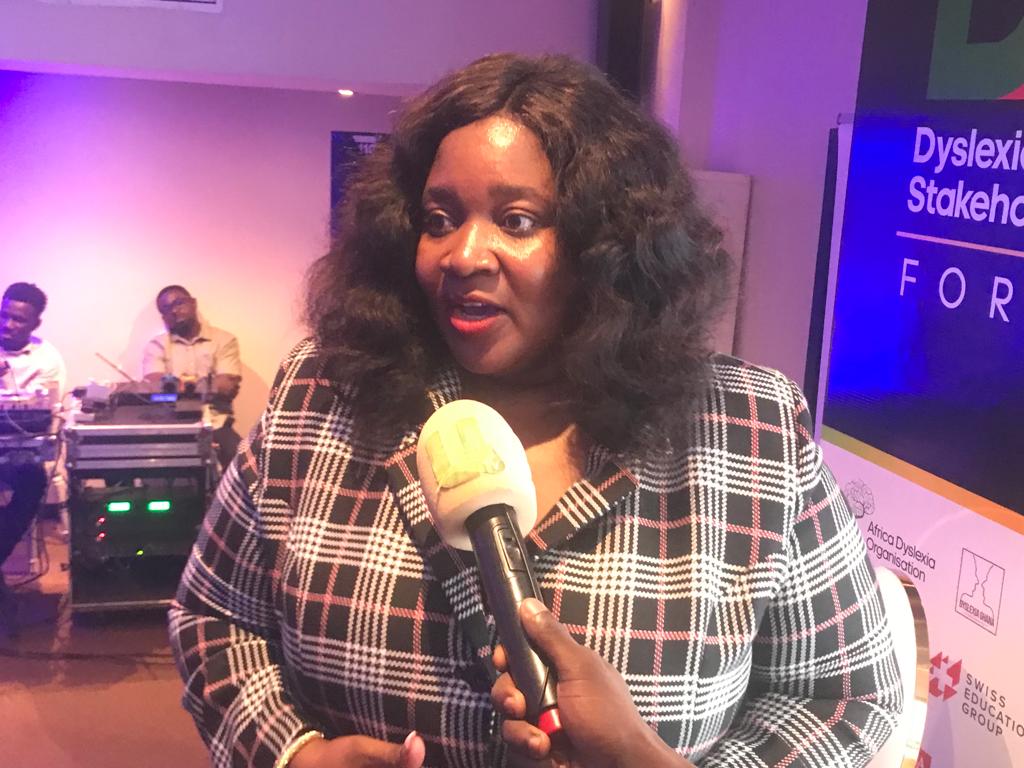The Founder of Africa Dyslexia Organisation (ADO), Ms Rosalin Abigail Kyere-Nartey has revealed that one out of every five Ghanaian children representing about 20% is likely to suffer from dyslexia, a shared learning disorder associated with children with standard vision and intelligence.
According to her, dyslexia, is a learning disability characterized by difficulty in processing, producing and using language.
Thus, it is a language-based learning disorder that makes it extremely hard for its sufferers to express their language skills as others easily do. Such people always find it difficult in pouncing words and alphabets correctly.
This condition tends to run in families and appears to be linked to certain genes that affect how the brain processes reading and language. Some of the most common problems dyslexics experience is the inability to read, write, spell and speak.
Ms Kyere-Nartey revealed further that many Ghanaians, including parents and teachers, were not aware of this learning condition or disability hence were unable to offer any form of support to dyslexics where necessary.
She said dyslexic children of school-going age are faced with the challenge of not receiving the needed attention and assistance to do well in their learning. They therefore often go through emotional and mental health challenges in class, as they are labelled by teachers and classmates as dumb and lazy learners.
She made this known at the maiden ‘Dyslexia Education Stakeholders’ forum held in Accra, last Monday, December 12, 2022.
Speaking on the theme, “Using Social-emotional Learning to Empower Students, she stated that persons with dyslexia are not equated to being unintelligent, however, their condition influences them to see and hear things differently. Dyslexics therefore only process information and learn things differently.
“When dyslexics are taught by teachers using the appropriate learning methods, they will enjoy and experience learning successfully. We have wonderful people who are dyslexics like Archbishop Nicholas Duncan Williams, Okyeame Kwame and many others,” she explained.
Ms Kyere-Nartey, therefore, called on the Ghana Education Service (GES) to make it mandatory for teacher training colleges to incorporate dyslexia training in their curriculum, which would empower teachers to help pupils with dyslexia and any other forms of learning disabilities.
“Every teacher needs to have some basic knowledge and training on how to handle children with various forms of learning disabilities. Such training will go a long way to support dyslexic students whilst boosting the confidence of teachers in their various classrooms,” she said.
Also, she noted that the challenge of handling large class sizes by teachers makes it difficult for them to identify students with the condition. This hinders teachers from making time to prepare and develop instructions, tailored to meet the needs of dyslexic learners.
Contributing to the issue, the Deputy Minister of Education, Rev. John Ntim Fordjour said the government of Ghana through the Education Ministry and strong partnership with the Ministry of Health are going to put in place measures to ensure early detection of dyslexia.
Rev. Ntim said the ministry is working hard to ensure that there is a robust system to ensure that no Ghanaian child is left behind and that is why the ministry is raising awareness.
He charged parents who need support for their dyslexia children should contact the ministry for support because the ministry has programs to integrate children with such learning deficiency and difficulties.
A radio presenter of Joy FM and Chief of Adumassa, Nana Ansah Kwao IV, said no child is born useless but unfortunately when some children fail to meet the school system standard “we turn to relegate them to the background.”
Ghanaian musician, Mr Kwame Nsiah-Apau, popularly known as Okyeame Kwame, advised parents, especially those with dyslexic children, to be patient with their wards during their learning process.
“It is your responsibility to lovingly model them to have the right emotional, conscious and intellectual values but do not beat them for not being academically good. Don’t transfer your fears onto your child,” he said.
